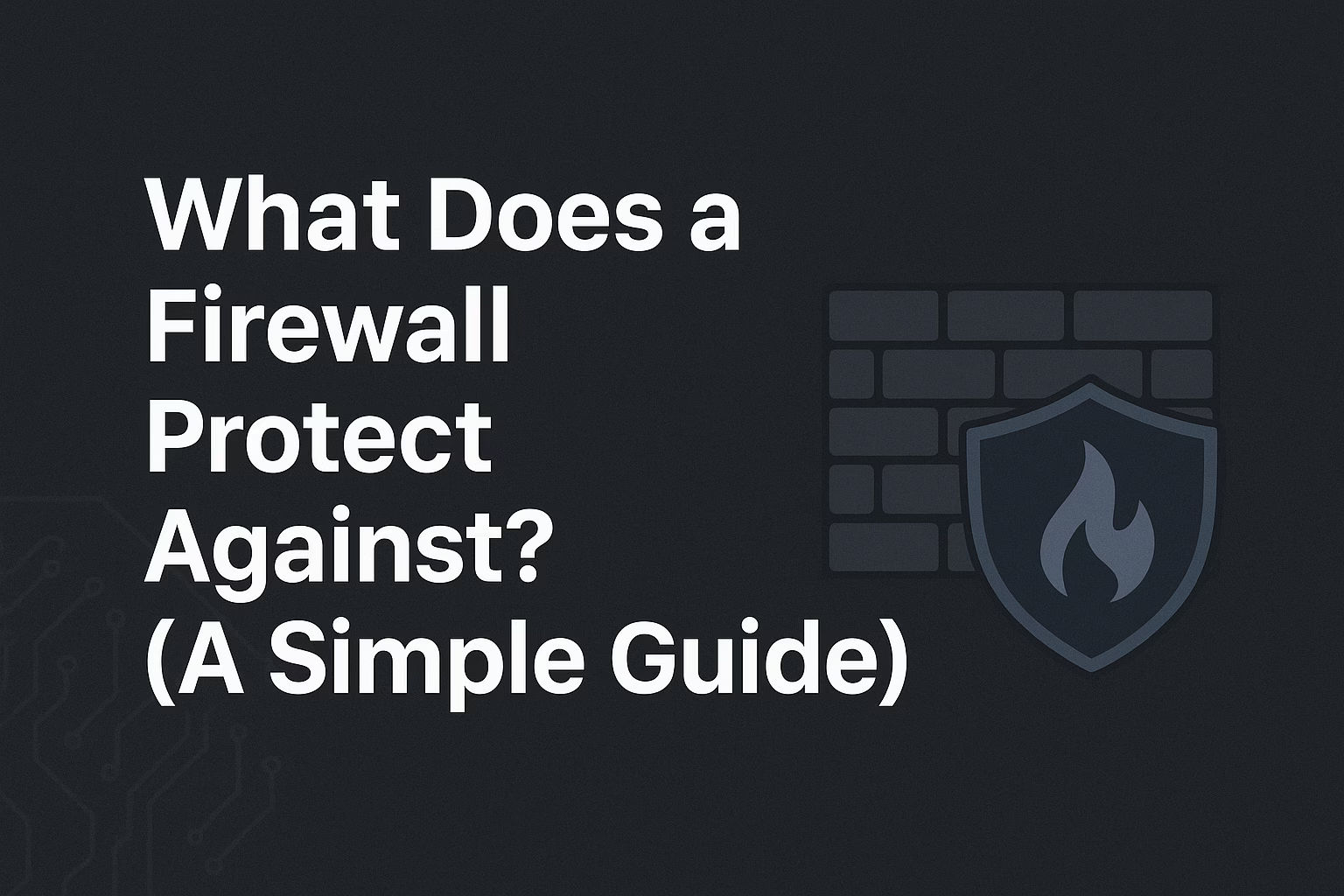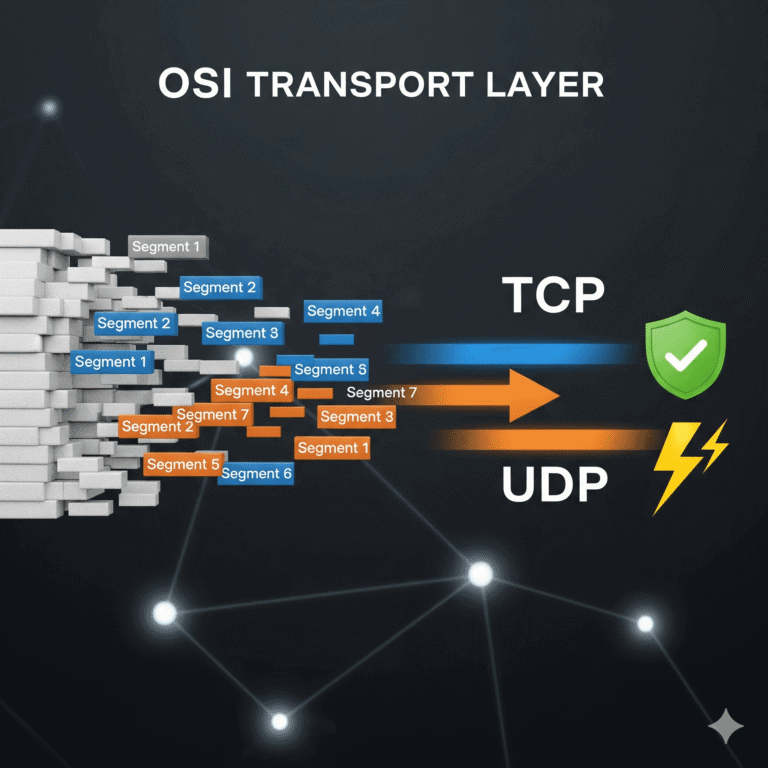You’ve probably heard that you need a firewall to be safe online, but what does a firewall actually do? Think of a firewall as the security guard standing at the gate of your computer network. Its only job is to inspect every piece of data trying to get in or out and decide if it’s safe or suspicious.
While it’s a critical part of your security, it’s not a magic shield. This guide will explain in simple terms what a firewall is, what it protects you against, and just as importantly, what it doesn’t.
First, what is a Firewall? (A Quick Refresher)
A firewall is a digital security system that monitors and controls incoming and outgoing network traffic based on a set of security rules. It establishes a barrier between a trusted internal network (your computer or home network) and an untrusted external network (the internet).
As we learned in our guide to networking basics, your computer uses thousands of digital “ports” to communicate. A firewall’s primary job is to keep these ports closed unless they have a legitimate reason to be open, preventing unauthorized access.
What a Firewall ACTUALLY Protects You Against ?
A properly configured firewall is your first line of defense against many common cyber threats. Here’s what it’s designed to stop.
1. Unauthorized Remote Access (Hacking Attempts) This is a firewall’s most important job. Hackers constantly scan the internet for computers with open and vulnerable ports. When they find one, they can try to exploit it to gain remote control of the device. A firewall hides your ports from the public internet and blocks these unsolicited connection attempts, making your computer essentially invisible to these scans.
2. Certain Types of Malware While a firewall is not a substitute for antivirus software, it can prevent some types of malware from ever reaching your computer. It can block your computer from communicating with known malicious servers on the internet, stopping a worm from spreading across the network or preventing a Trojan from “phoning home” to its command-and-control server.
3. Malicious Network Traffic Firewalls can be configured to block specific types of data packets or traffic from suspicious IP addresses. This helps to stop various forms of network-based attacks and can prevent your computer from being used as part of a botnet in a denial-of-service (DDoS) attack.
What a Firewall Does NOT Protect You Against
Understanding a firewall’s limitations is just as important as knowing its strengths. A firewall cannot protect you from:
- Phishing Attacks: A firewall cannot tell the difference between you logging into your real banking site versus a fake one. If you are tricked into giving away your password, a firewall can’t stop that. (See our guide on how to spot a phishing email).
- Viruses from USB Drives: A firewall only monitors network traffic. If you plug in an infected USB drive, it completely bypasses the firewall’s protection. This is a job for your antivirus software.
- User Error: If you are tricked into intentionally downloading and running a malicious file, a firewall will likely not stop it, as it assumes you are a trusted user making a legitimate request.
Conclusion: An Essential First Line of Defense
A firewall is an absolutely essential tool for modern network security. It excels at protecting you from unsolicited and malicious network-based attacks. However, it’s just one piece of the puzzle. The best security comes from a layered approach: a firewall for the network, antivirus software for your files, and most importantly, your own knowledge and vigilance to avoid scams.
Ready to get your hands dirty? Subscribe to CyberTerminal to stay updated!
[INSERT_ELEMENTOR id=”1346″]




